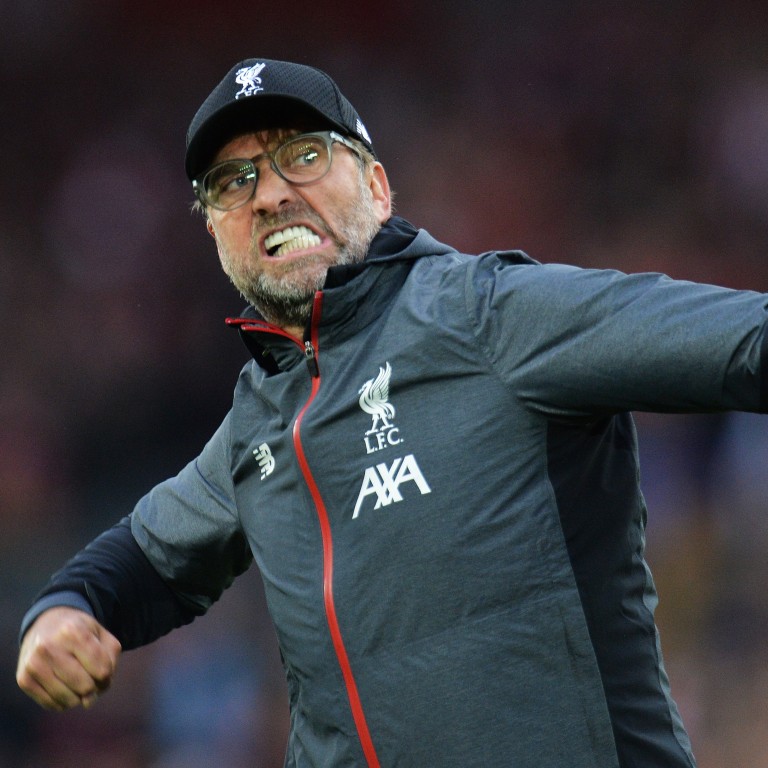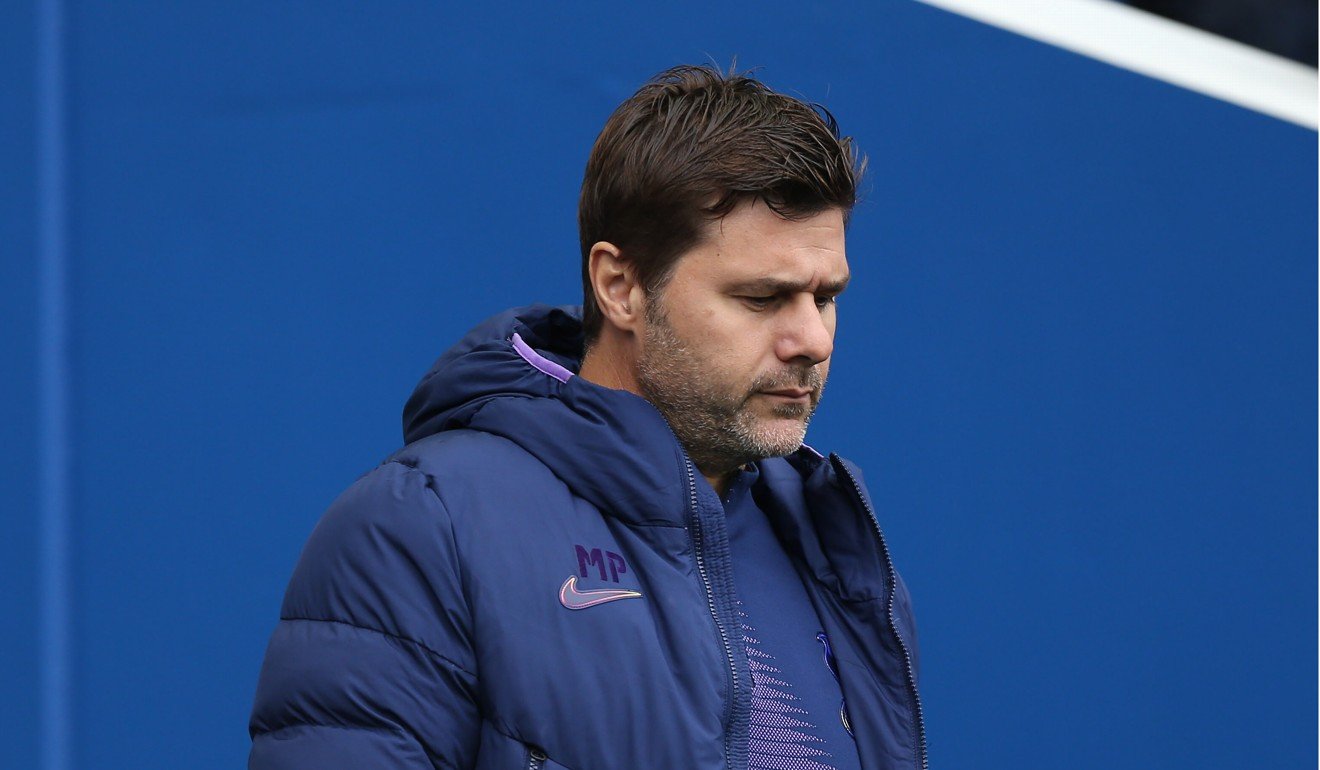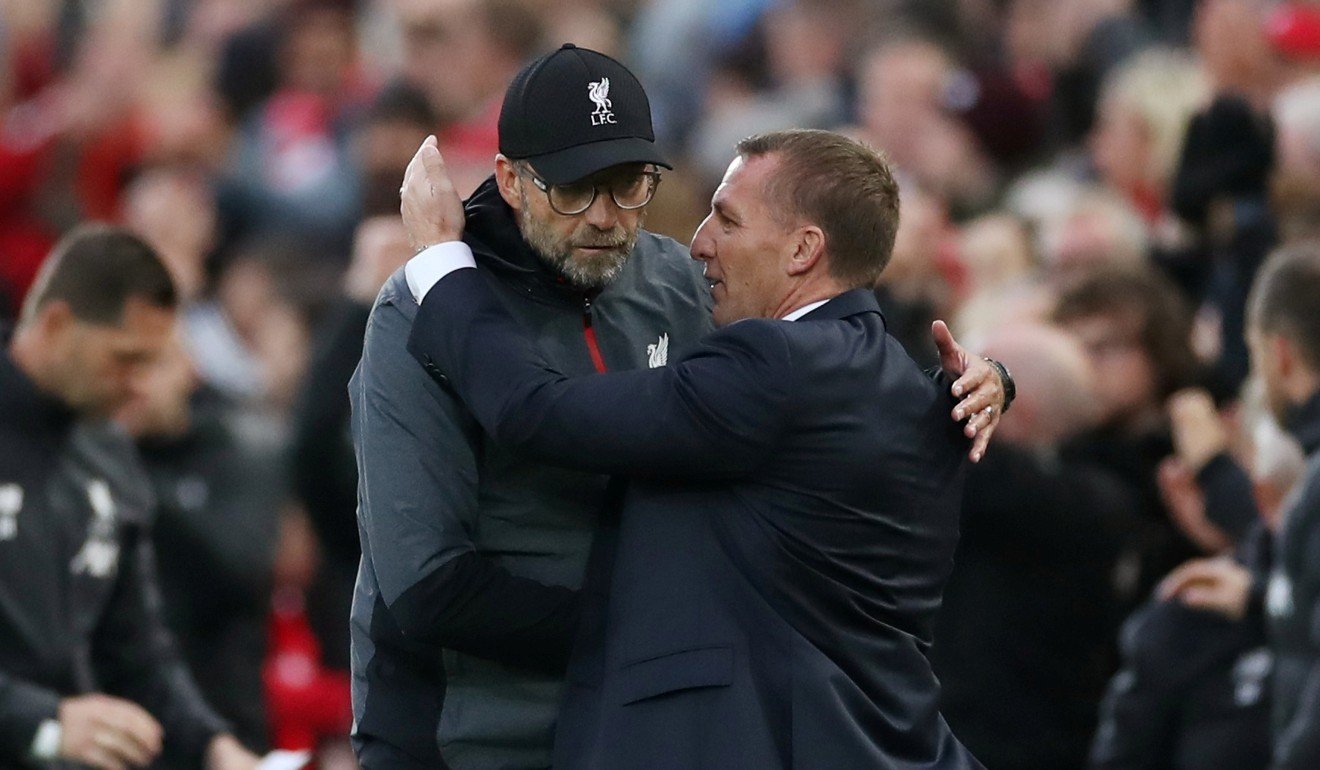
Jurgen Klopp still energising Anfield as he enters his fourth year in charge at Liverpool
- October 8 marked the anniversary of the German’s fourth year in charge at Liverpool
- Klopp’s team are at the start of an assault on six fronts this season
It is hard to believe Jurgen Klopp entered his fifth year on Merseyside this week. The German still generates excitement around Anfield. Most clubs feel a bit stale when a manager has been at the helm for four years. Not Liverpool.
The 52-year-old’s energy and passion are undimmed. The squad are receptive to his ideas. Dressing-rooms can become immune to a manager’s psychological promptings over an extended period. Players get to the point where they have heard it all before. It takes a special individual to retain the ability to motivate a group of young men season after season. Klopp inspires belief.
Klopp’s first game in charge in October 2015 was against Tottenham Hotspur. Mauricio Pochettino’s youthful team were about to emerge as a top-four side with serious pretensions to win trophies. In June Spurs lost 2-0 to Liverpool in the Champions League final in Madrid, but by that time Pochettino’s power was on the wane. He has struggled to inspire the players. What is happening at White Hart Lane is a good example of how short the shelf life of a Premier League manager can be. Klopp is an exception to the accepted rules.
How does he do it? Winning generates conviction. The team have got better with every season. It creates an environment where players expect success, even in difficult circumstances. The weekend’s performance against Leicester City is a good example. When Liverpool conceded a late equaliser, it would have been easy for everyone to settle for a point against one of the division’s more capable sides. Instead, the team piled on the pressure and won a stoppage-time penalty that James Milner dispatched to seal a 2-1 victory. Klopp calls his men “mentality monsters”. That game illustrated why.

It took a while for Klopp to build this fortitude. The squad he took over four years ago lacked mental robustness in adversity. Seven of the starting side at White Hart Lane are no longer at the club and another, Nathaniel Clyne, is on loan at Bournemouth and unlikely to return. Brendan Rodgers, Klopp’s predecessor, said before his final game in charge that Liverpool needed to begin a three-year rebuilding cycle. That infuriated Fenway Sports Group (FSG), who believed they could win with the personnel available to Rodgers. It was the final straw in an increasingly uncomfortable relationship and FSG replaced the Northern Irishman with Klopp.
The former Borussia Dortmund coach told FSG what they wanted to hear. At the time Liverpool were in four competitions and Klopp told his bosses he could compete on all fronts. It was a hopelessly optimistic assessment. Rodgers was right about the squad. They were not good enough. Even Klopp could not lift them higher than eighth in the Premier League.
After four years, most managers have outstayed their welcome yet it feels like things have only got started for Klopp at Anfield. Liverpool are in good hands
The German’s first full campaign in charge at Anfield was a dangerous time. The manager lacked the players to implement his plan and only sealed a top-four place on the final day of the season. There were rumblings within the squad. Experienced individuals questioned the team’s lack of a “plan B” when Klopp’s preferred style of play was not working. Although support for the manager was unstinting on the Kop and in the boardroom and his effervescent personality entranced fans and owners alike, there was a seam of doubt in the squad. It was merely muttering and never developed into a serious issue but low-level complaints can quickly get out of hand if not addressed.
Maverick Brendan Rodgers returns to Anfield with his stock rising and a chance to show he has matured since Liverpool days
Klopp had to weed out players and recruit men more suited physically and mentally to the methods he wished to impose. This meant changing the direction of Liverpool’s transfer strategy. FSG’s policy was to try to find talent other clubs might not have noticed or undervalued. This worked brilliantly in Mo Salah’s case. However, Klopp recognised that in key positions this could be too much of a risk. There are times when it is worth paying big money for proven performers. Spending £75 million (US$91.7 million, HK$719.5 million) on Virgil van Dijk looked like extravagance but it turned out to be a bargain. Likewise, £57 million for Alisson Becker appeared rash but the goalkeeper made a huge difference. Van Dijk inspired the team to the Champions League final against Real Madrid last year in his first five months on Merseyside, hauling Liverpool to a different level, but Alisson’s arrival helped them make the next step – winning the trophy in Madrid. Klopp recognised that sometimes you have to pay more than the going rate for quality.

Can he maintain the momentum? The 100 per cent record in the first eight Premier League fixtures and the way Liverpool respond to adversity show morale is strong. The depth of the squad could become a problem as the season wears on – especially with the Club World Cup adding extra games in December – but if the front three and Van Dijk avoid injuries the title challenge should be maintained into the spring.
One issue could be the lack of signings in the summer and it is not just about strengthening the squad. In each of Klopp’s seasons in charge the club have been astute in bringing in a couple of players who were not only good enough to force their way into the first XI but changed the dynamic of the dressing room and gave the manager fresh faces to motivate. Sadio Mane and Georginio Wijnaldum arrived in Klopp’s first summer, Salah, Andy Robertson and Alex Oxlade-Chamberlain in his second. Van Dijk signed the following January and Alisson, Fabinho and Naby Keita came in the next window.
Life after Liverpool: Emre Can joins Michael Owen in having regrets after walking away from European Champions
One quiet summer will not make too much of a difference but – as Pochettino will attest – even the most talented squads stagnate. Klopp understands this and is constantly looking to refresh things but he is also keen to ensure Liverpool buy the right sort of player. As he showed when the original Van Dijk deal died in the summer of 2017, he will wait to get his man.
After four years, most managers have outstayed their welcome yet it feels like things have only got started for Klopp at Anfield. Liverpool are in good hands.

